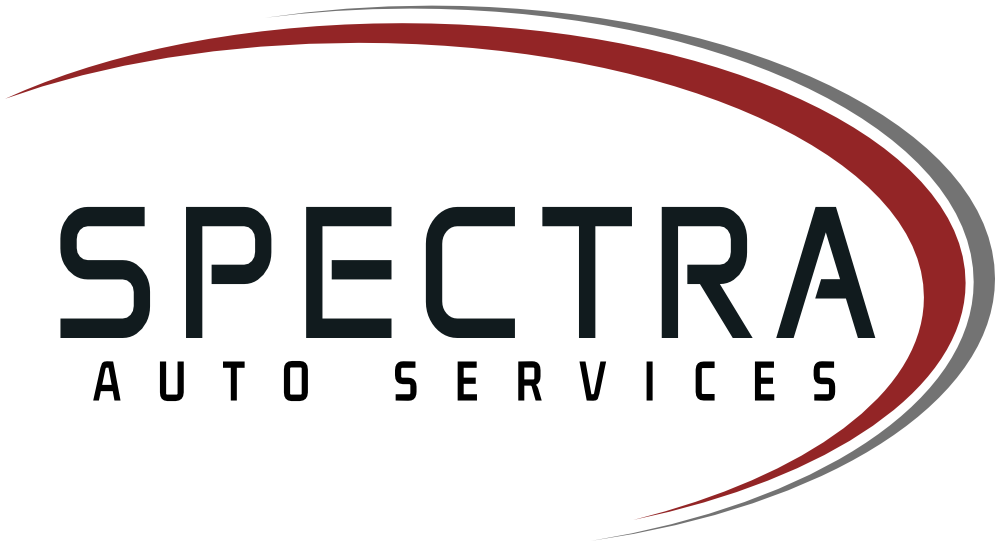Getting Your Vehicle Ready for Fall Weather in Frederick
Chris Adams • September 5, 2025
This is paragraph text. Click it or hit the Manage Text button to change the font, color, size, format, and more. To set up site-wide paragraph and title styles, go to Site Theme.
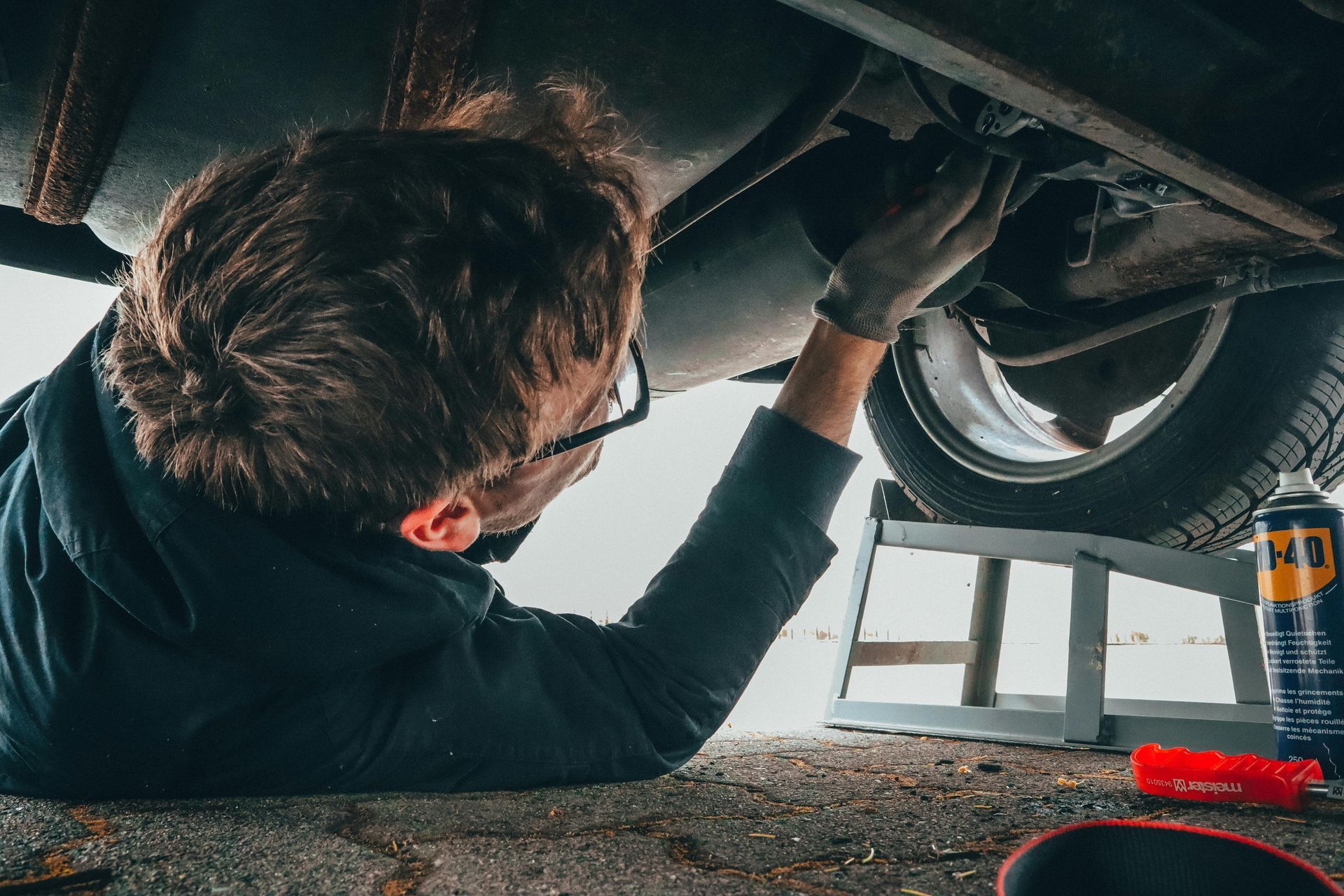
Choosing the right auto repair shop in Frederick, Maryland can mean the difference between years of reliable vehicle service and costly mistakes that drain your wallet. With dozens of repair facilities throughout the Frederick area, making the right choice requires careful consideration of several important factors. The wrong repair shop can leave you with recurring problems, overpriced services, and vehicle damage that costs thousands to fix properly. Smart Frederick drivers take time to research their options before they need emergency repairs, ensuring they have a trusted partner ready when automotive problems arise. Look for Proper Certifications and Training Professional certifications tell you a lot about a repair shop's commitment to quality work. In Frederick's competitive automotive market, the best shops invest in ongoing training and maintain industry certifications that prove their expertise. Key certifications to look for: ASE (Automotive Service Excellence) certified technicians TechNet Professional facility membership Manufacturer-specific certifications for your vehicle brand State inspection licenses for Maryland safety inspections EPA certifications for refrigerant handling These certifications aren't just wall decorations - they represent ongoing education and adherence to industry standards that protect your vehicle and your investment. Experience Matters in Frederick's Climate Maryland's unique weather patterns create specific automotive challenges that experienced local shops handle better than newcomers. Frederick's temperature swings, mountain driving conditions, and seasonal weather changes require specialized knowledge. Look for shops that have served the Frederick community for many years. Long-term local businesses have survived by building reputations for quality work and customer satisfaction. They also better understand the specific problems that affect vehicles in central Maryland. Evaluate Customer Communication Good communication separates excellent repair shops from mediocre ones. The best Frederick auto repair facilities explain problems clearly, provide written estimates, and keep customers informed throughout the repair process. Signs of good communication: Technicians explain problems in terms you can understand Written estimates detail all work and costs Regular updates during lengthy repairs Clear explanations of warranty coverage Honest assessments about repair necessity Avoid shops that pressure you into immediate decisions or can't clearly explain what's wrong with your vehicle. Check Online Reviews and Local Reputation Frederick's close-knit community means word travels fast about both excellent and poor auto repair experiences. Online reviews, combined with recommendations from friends and neighbors, provide valuable insights into shop quality. Look for patterns in reviews rather than focusing on individual complaints. Every shop occasionally has dissatisfied customers, but consistent themes about quality, pricing, or customer service reveal important information about shop standards. Verify Insurance and Warranty Coverage Reputable auto repair shops carry proper insurance and offer warranties on their work. This protection is especially important for complex repairs that could affect vehicle safety or performance. Ask about: Shop liability insurance coverage Warranty periods on parts and labor Nationwide warranty acceptance for travel What happens if problems recur after repair Shops that stand behind their work offer substantial warranties and honor them without argument. Assess Facility Condition and Equipment A shop's physical condition often reflects the quality of work performed there. Clean, organized facilities with modern equipment suggest professional operation and attention to detail. Look for: Clean, organized work areas Modern diagnostic equipment Proper tool organization Professional appearance of staff Current safety equipment You don't need pristine conditions, but basic cleanliness and organization indicate professional standards. Compare Pricing Fairly The cheapest repair shop isn't always the best value. Quality parts, skilled labor, and proper procedures cost more than shortcuts that lead to recurring problems. Request detailed written estimates that break down parts and labor costs. This transparency helps you compare options fairly and avoid surprise charges later. Consider Location and Convenience Choose a repair shop that's convenient for your schedule and location. Frederick traffic patterns and your daily routine should influence your decision, especially for routine maintenance services. Convenience factors include: Location relative to home or work Operating hours that match your schedule Appointment availability Shuttle service or loaner cars Drop-off and pickup flexibility Ask About Specializations Some Frederick repair shops specialize in specific vehicle types or services. If you drive a European import, hybrid vehicle, or diesel truck, shops with relevant specialization may serve you better than general repair facilities. However, well-established general repair shops often handle most vehicle types effectively and may be more convenient for routine maintenance. Emergency Service Availability Vehicle breakdowns don't follow convenient schedules. Consider whether shops offer emergency services, roadside assistance, or priority scheduling for urgent repairs. Frederick's busy roads and variable weather can create situations where quick repair service becomes critical for safety and convenience. Trust Your Instincts Professional auto repair involves significant trust between customers and service providers. If something feels wrong about a shop's approach, pricing, or communication, consider other options. The best repair relationships develop over time as shops prove their reliability and competence through consistent quality work. Make the Right Choice in Frederick Choosing the right auto repair shop protects your vehicle investment and gives you peace of mind on Maryland's roads. Spectra Auto Services has been Frederick's trusted automotive partner for over 35 years, combining professional certifications, modern equipment, and genuine customer care. As a TechNet Professional facility with ASE-certified technicians, we provide comprehensive auto repair and maintenance services backed by a 24-month/24,000 mile nationwide warranty. Our family-owned business has built lasting relationships with Frederick drivers through honest communication, quality workmanship, and fair pricing. Experience the difference that 35 years of Frederick automotive expertise makes. Call (301) 244-9975 or book online to discover why so many local drivers trust Spectra Auto Services with their vehicles!
Ensure your vehicle meets state safety standards with Spectra Auto Services in Frederick, MD. Expert inspections await. Schedule an online appointment now!
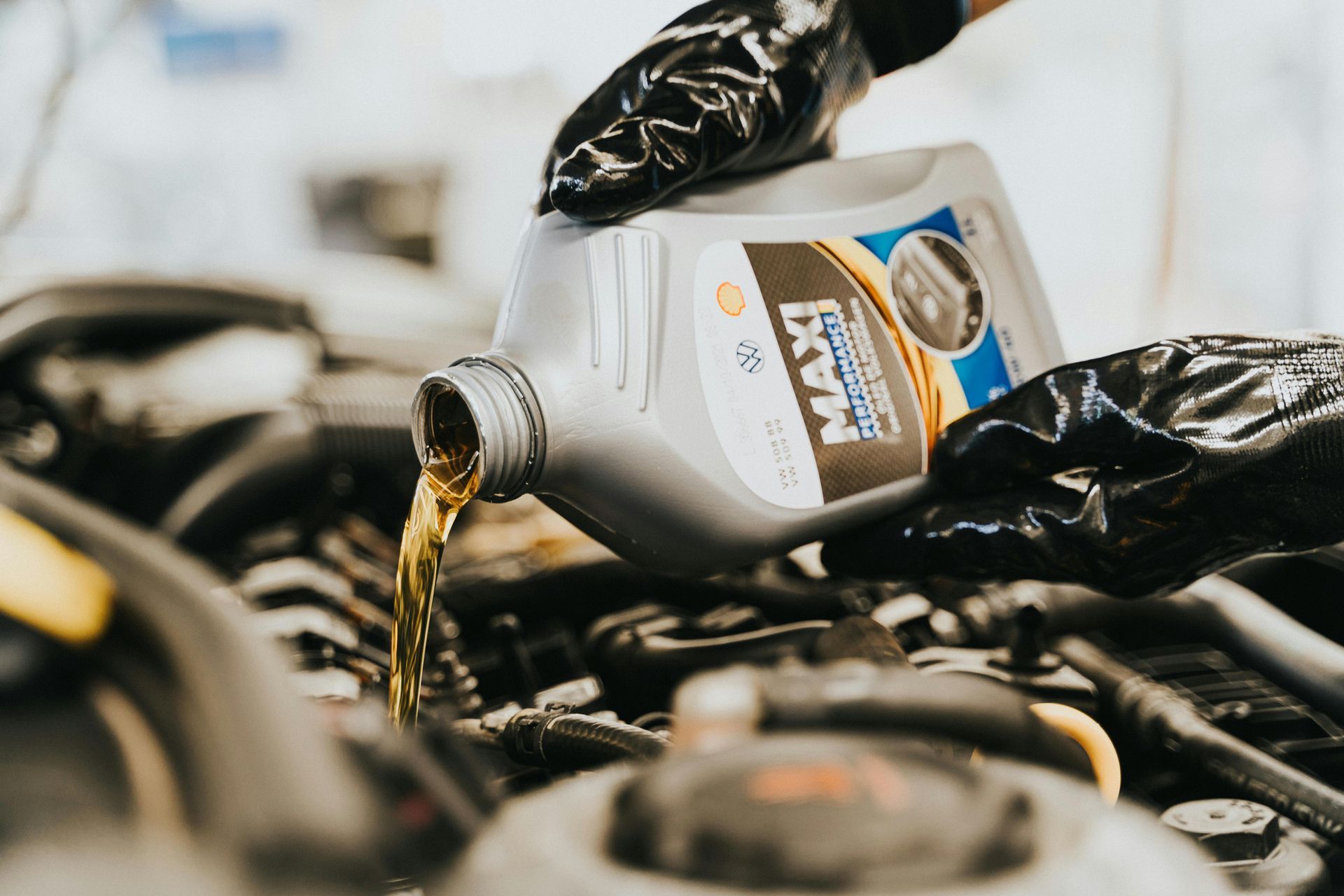
Late summer in Frederick, Maryland marks the perfect window for getting your oil changed. After months of hot weather driving, vacation road trips, and stop-and-go traffic, your engine oil has worked overtime to protect your vehicle. Before autumn arrives with its own challenges, smart drivers take advantage of this timing to refresh their engine's lifeblood. Getting an oil change in late August or early September sets your car up for success during the seasonal transition ahead. Here's why this timing makes so much sense for Maryland drivers. Summer Heat Takes a Toll on Engine Oil Maryland's summer temperatures put serious stress on your engine oil. When outside temperatures climb into the 90s, engine compartments can reach 200°F or higher. This extreme heat breaks down oil molecules and reduces the oil's ability to protect engine components. Summer driving conditions that degrade oil faster include: Extended highway trips to Ocean City or Virginia Beach Sitting in traffic on I-270 during rush hour Frequent short trips around Frederick that don't let engines fully warm up Towing boats, trailers, or campers during vacation season Running air conditioning that puts extra load on the engine By late summer, even high-quality oil has lost much of its protective properties. The oil that protected your engine in May isn't nearly as effective by August. Beat the Fall Rush Late summer oil changes help you avoid the busy fall season when everyone suddenly remembers their car maintenance. September and October bring heavy demand for automotive services as drivers prepare for winter. Scheduling your oil change in late August means: Better appointment availability at your preferred time No waiting weeks for service Avoiding the stress of last-minute maintenance Getting ahead of seasonal preparation Prepare for Temperature Swings Maryland's fall weather can be unpredictable. One day it's 85°F, the next it's 55°F with morning frost. These temperature swings affect oil viscosity and engine performance. Fresh oil handles temperature changes much better than oil that's been degraded by summer heat. Clean oil flows properly in cool mornings while still protecting your engine when afternoon temperatures climb. Remove Summer Contaminants Summer driving introduces specific contaminants into your engine oil: Dust and pollen from open windows and increased outdoor activity Moisture from humid Maryland air and AC condensation Fuel dilution from stop-and-go traffic and short trips Carbon buildup from hot weather driving conditions A late summer oil change flushes out these contaminants before they can cause long-term engine damage. Fresh oil and a new filter give your engine a clean start for the fall season. Signs Your Summer Oil Needs Changing Don't just rely on mileage or time intervals. Maryland's summer driving can accelerate oil degradation beyond normal schedules. Check for these warning signs: Oil appears dark black instead of amber or brown Oil feels gritty between your fingers Engine sounds louder or rougher than usual Oil level drops faster than normal Check engine light appears If you notice any of these signs, don't wait - schedule an oil change immediately. Consider Your Summer Driving Habits Think about how you've used your car this summer. Frederick residents often put extra miles on their vehicles during vacation season: Weekend trips to Antietam National Battlefield Drives through Catoctin Mountain Park Regular commutes on Route 15 or I-70 Shopping trips to nearby outlets and malls Heavy summer use means your oil has worked harder than usual. Even if you haven't reached your normal mileage interval, the intense summer conditions may warrant an early oil change. Don't Forget the Filter Your oil filter has been working just as hard as your oil all summer long. A clogged filter can't remove contaminants effectively, which means dirty oil continues circulating through your engine. Most quality oil changes include a new filter, but always confirm this is part of the service. A new filter with fresh oil gives you maximum protection heading into fall. Choose the Right Oil for Maryland Weather Late summer is also the perfect time to evaluate whether you're using the right oil type for Maryland's climate. Your technician can recommend the best viscosity for the upcoming cooler weather while ensuring summer protection. Consider factors like: Your vehicle's age and mileage Typical driving conditions around Frederick Manufacturer recommendations Seasonal temperature variations Professional Service Advantages While some drivers change their own oil, late summer is an excellent time for professional service. Experienced technicians can spot potential problems before they become expensive repairs. Professional oil changes include: Multi-point inspections of fluid levels Visual checks of belts, hoses, and components Battery and charging system tests Tire pressure and tread depth checks Start Fall Right in Frederick Don't let summer's wear and tear carry over into fall. The experienced technicians at Spectra Auto Services have been helping Frederick drivers maintain their vehicles through Maryland's seasonal changes for over 35 years. Our comprehensive oil change service includes premium oil options, quality filters, and a thorough inspection to catch potential issues early. As a TechNet-certified facility, we back our work with a 24-month/24,000 mile nationwide warranty. Whether you drive a daily commuter car or a weekend adventure vehicle, we'll help you choose the right oil and service interval for Maryland's unique driving conditions. Schedule your late summer oil change today by calling (301) 244-9975 or booking online. Give your engine the fresh start it deserves before fall arrives!

Summer is winding down, and families across Frederick, Maryland are preparing for another school year. Whether you're a parent dropping kids off at local schools like Frederick High School or Thomas Johnson High School, or you're a college student heading back to Hood College or Frederick Community College, your vehicle needs to be ready for the increased daily use ahead. The start of the school year means more frequent trips, heavier traffic on roads like Route 15 and I-270, and the need for reliable transportation. A well-maintained car isn't just about convenience—it's about keeping your family safe during those busy morning commutes and late evening pickups. Check Your Tires for Safe School Zone Driving Tires are your first line of defense against Maryland's changing road conditions. As temperatures begin to drop in Frederick County, proper tire maintenance becomes even more important. What to inspect: Tread depth using the penny test (Lincoln's head should be partially covered) Tire pressure according to your owner's manual Signs of uneven wear that could indicate alignment issues Sidewall damage or bulges Properly inflated tires improve gas mileage—important when you're making multiple school runs each day. If you notice any issues, don't wait. Poor tires can lead to dangerous situations, especially in school zones where children are present. Brake System: Your Most Important Safety Feature With increased stop-and-go traffic around Frederick's schools and busy intersections like Market Street and Route 40, your brakes work harder during the school year. Warning signs to watch for: Squealing or grinding noises when braking Vibrations in the steering wheel or brake pedal Longer stopping distances Brake pedal feels spongy or goes to the floor Frederick's rolling hills and frequent stops at traffic lights put extra strain on brake systems. Having your brakes inspected before school starts can prevent dangerous situations and costly emergency repairs later. Oil Changes: Keep Your Engine Happy During Busy Schedules Regular oil changes are especially important when your car faces increased daily use. Fresh oil helps your engine run efficiently, which is crucial for parents juggling school schedules, work commutes, and after-school activities. Most vehicles need oil changes every 3,000 to 5,000 miles, but check your owner's manual for specific recommendations. If you're frequently driving in Frederick's stop-and-go traffic or taking trips to nearby areas like Mount Airy or Urbana, you might need more frequent changes. Clean oil also helps your car start more easily on those chilly October mornings when Maryland's weather begins to change. Battery and Electrical System Health Dead batteries don't follow convenient schedules. The last thing you want is to be stranded in the parking lot at Baker Park after your child's soccer practice or outside the student center at Hood College. Battery maintenance tips: Clean corrosion from battery terminals Check that connections are tight and secure Test battery strength, especially if it's over three years old Ensure headlights, taillights, and turn signals work properly Frederick's temperature swings from hot summers to cold winters are tough on car batteries. Getting yours tested before the school year starts can save you from inconvenient breakdowns. Air Conditioning and Heating Systems Maryland weather can be unpredictable, even in early fall. You want your air conditioning working for those warm September afternoons and your heating system ready for crisp October mornings. A properly functioning climate control system also helps keep windows clear of fog and condensation, which is essential for safe driving around school zones and busy Frederick streets. Lights and Visibility Shorter days are coming, which means more driving in low-light conditions. This is especially important for college students who might be driving home late from study sessions or part-time jobs. Check all lights including: Headlights (both high and low beams) Taillights and brake lights Turn signals and hazard lights Interior lights for safety when loading backpacks and supplies Don't forget to replace worn windshield wipers. Fall brings rain, and you need clear visibility for safe driving on wet Frederick County roads. Maryland State Inspection Requirements Maryland doesn't require annual safety inspections, instead requiring a one-time inspection when you register a car in Maryland. However, it's still a good idea to have a qualified mechanic check out your car to make sure it's in tip-top shape. Your local auto repair expert can inspect every aspect of your car, including brakes, lights, steering, suspension, and emissions systems. Getting this done before school starts ensures you won't have to worry about the car during the busy school year. Plan Ahead for School Year Success Creating a maintenance schedule helps you stay ahead of potential problems. Mark your calendar for regular oil changes, and don't ignore warning signs like unusual noises, dashboard warning lights, or changes in how your car handles. Regular maintenance costs less than emergency repairs and helps ensure your vehicle is ready when your family needs it most. Keep Your Frederick Family Moving Safely This School Year Don't let car troubles disrupt your family's school year routine. At Spectra Auto Services, we've been keeping Frederick families safe on the road for 35 years. Our TechNet-certified technicians can handle everything from routine oil changes to comprehensive brake inspections, all backed by our 24-month/24,000-mile nationwide warranty. Located at 324 N East St in Frederick, we're convenient to schools and colleges throughout the area. Call us at (301) 244-9975 to schedule your back-to-school vehicle inspection, or book online to ensure your car is ready for another successful school year. We even offer local shuttle service to make your visit as convenient as possible during your busy schedule.

Summer in Frederick, Maryland brings beautiful weather perfect for weekend trips to Cunningham Falls or exploring the historic downtown district. However, those sweltering July and August temperatures that regularly climb into the 90s can be brutal on your vehicle. The intense heat and humidity that characterize Maryland summers can cause serious damage to your car if you're not prepared. Why Heat Hurts Your Vehicle Hot weather puts extra stress on nearly every system in your car. Your engine works harder to stay cool, your air conditioning system runs constantly, and materials like rubber and plastic become more vulnerable to cracking and wear. In Frederick's humid climate, these problems can develop quickly and lead to expensive repairs if ignored. The combination of high temperatures and stop-and-go traffic on routes like Route 15 or Interstate 270 creates the perfect storm for overheating issues. Many Frederick drivers don't realize how much their daily commute to nearby cities like Rockville or Washington, D.C. taxes their vehicle during summer months. Keep Your Engine Cool Check Your Coolant Regularly Your cooling system is your car's first line of defense against summer heat. Check your coolant level at least once a month during summer. The fluid should be between the minimum and maximum marks on the reservoir. If you're constantly adding coolant, you likely have a leak that needs professional attention. Inspect Belts and Hoses Heat causes rubber components to deteriorate faster. Look for cracks, fraying, or soft spots on belts and hoses. A broken belt or burst hose can leave you stranded on a hot day, something no one wants to experience on busy Frederick streets during rush hour. Test Your Thermostat A faulty thermostat can cause your engine to run too hot or prevent it from reaching proper operating temperature. If your temperature gauge shows higher than normal readings, have it checked immediately. Air Conditioning Maintenance Nothing ruins a summer drive through Frederick County's scenic backroads like a broken air conditioner. Here's how to keep yours running strong: Replace Your Cabin Air Filter A dirty cabin air filter forces your AC system to work harder and reduces air quality inside your car. Replace it every 12,000 to 15,000 miles or annually. Check Refrigerant Levels Low refrigerant is the most common cause of poor AC performance. Professional technicians can check levels and identify leaks in the system. Clean Your Condenser The AC condenser sits in front of your radiator and can become clogged with debris, pollen, and dust - especially during Frederick's pollen-heavy spring season. Keep it clean for optimal performance. Protect Your Tires Hot pavement temperatures on Frederick's roads can exceed 140°F during peak summer days, putting tremendous stress on your tires. Monitor Tire Pressure Weekly Heat causes air to expand, which can lead to overinflated tires. Conversely, underinflated tires generate more heat through increased friction. Check pressure when tires are cool, preferably in the morning before driving. Inspect Tread Depth Worn tires are more prone to blowouts in extreme heat. Use the penny test: insert a penny into the tread with Lincoln's head pointing down. If you can see the top of his head, it's time for new tires. Rotate Regularly Proper rotation ensures even wear and extends tire life. This is especially important for vehicles that frequently travel on hot asphalt during Frederick's summer festivals and events. Battery Care in Hot Weather Many people think cold weather is hardest on car batteries, but extreme heat actually causes more battery failures. High temperatures accelerate the chemical reaction inside the battery, leading to overcharging and shorter lifespan. Keep your battery terminals clean and free of corrosion. Park in shaded areas when possible, and have your battery tested if it's more than three years old. Oil Changes Are Critical Hot weather breaks down motor oil faster, reducing its ability to lubricate and protect your engine. During Frederick's hottest months, consider switching to a full synthetic oil that handles high temperatures better than conventional oil. Don't extend oil change intervals during summer. The extra heat stress means your engine needs fresh oil more frequently to stay protected. Emergency Preparedness Keep an emergency kit in your car with extra coolant, motor oil, jumper cables, and plenty of water for drinking. Frederick's summer traffic jams can turn a minor breakdown into a dangerous situation without proper preparation. Keep Your Car Running Cool This Summer Don't let Maryland's summer heat leave you stranded on the side of the road. At Spectra Auto Services in Frederick, our experienced technicians can inspect your cooling system, service your air conditioning, check your battery, and ensure your vehicle is ready for whatever summer throws at it. With over 35 years of experience serving Frederick and surrounding communities, we know exactly what local driving conditions do to vehicles. Our TechNet-certified facility offers comprehensive summer maintenance services backed by our 24-month/24,000 mile nationwide warranty. Call us today at (301) 244-9975 or visit us at 324 N East St to schedule your summer vehicle inspection. Beat the heat before it beats your car!

Summer in Frederick, Maryland brings perfect weather for road trips to Ocean City, Harpers Ferry, or the scenic Blue Ridge Mountains. But before you pack your bags and hit I-70 or Route 15, there's one crucial safety check you can't afford to skip: your brakes. Your brake system works harder during summer driving. Stop-and-go traffic on busy Maryland highways, mountain descents, and frequent stops at tourist destinations put extra stress on your brake components. That's why it's essential to recognize the warning signs that your brakes need professional service before you head out on your next adventure. 1. Squealing or Grinding Noises When You Brake What you'll hear: High-pitched squealing sounds when you press the brake pedal, or worse—a grinding noise that sounds like metal scraping against metal. What it means: Squealing usually indicates your brake pads are wearing thin and hitting the wear indicator tabs. Grinding means your brake pads are completely worn down, and metal is scraping against your brake rotors. Why it matters for summer travel: Frederick's hilly terrain and summer traffic jams require frequent braking. Worn brake pads can quickly become dangerous when you're driving down steep grades or need to make sudden stops in heavy traffic. 2. Your Brake Pedal Feels Soft or Spongy What you'll notice: When you press the brake pedal, it feels mushy, goes down too far, or doesn't provide the firm resistance you're used to. What it means: This often points to air in your brake lines, brake fluid leaks, or worn brake components that aren't creating proper pressure in your brake system. Why it matters for summer travel: Maryland's summer heat can make brake fluid issues worse. A soft brake pedal means you might not be able to stop quickly enough if a deer jumps into the road near Catoctin Mountain Park or if traffic suddenly stops on I-270. 3. Your Car Pulls to One Side When Braking What you'll feel: Your steering wheel jerks to the left or right when you apply the brakes, or your car seems to drift toward one side of the road during braking. What it means: One brake is working harder than the other. This could be due to uneven brake pad wear, a stuck brake caliper, or brake fluid issues on one side of your vehicle. Why it matters for summer travel: Uneven braking becomes especially dangerous on winding mountain roads or when making quick stops. You need predictable, straight-line braking to stay safe on Maryland's diverse road conditions. 4. Vibrations or Pulsing in the Brake Pedal What you'll feel: The brake pedal vibrates, pulses, or shakes under your foot when you try to stop, especially during harder braking. What it means: Your brake rotors are likely warped from excessive heat or normal wear. Warped rotors can't provide smooth, even contact with your brake pads. Why it matters for summer travel: Summer heat makes rotor warping worse. Vibrating brakes reduce your stopping power and can be particularly dangerous when driving through Frederick's downtown area or busy shopping districts where pedestrians are present. 5. Warning Lights on Your Dashboard What you'll see: Your brake warning light stays on, or your ABS (Anti-lock Brake System) light illuminates on your dashboard. What it means: Your car's computer has detected a problem with your brake system. This could range from low brake fluid to more serious brake component failures. Why it matters for summer travel: Modern brake systems are complex, and warning lights often catch problems before you notice symptoms. Ignoring these warnings could leave you stranded or, worse, unable to stop safely during your summer travels. Don't Wait Until It's Too Late Maryland summers are short, and you don't want to waste precious vacation time dealing with brake problems on the road. These warning signs often start small but can quickly become serious safety hazards, especially with the increased driving demands of summer road trips. Heat, humidity, and increased driving all put extra stress on your brake system. What might seem like a minor squeaking noise in your Frederick driveway could become a major safety issue when you're driving down a steep mountain road or trying to stop quickly in beach traffic. Schedule Your Brake Service Today Don't let brake problems ruin your Maryland summer adventures. If you've noticed any of these warning signs, it's time to have your brakes professionally inspected and serviced. At Spectra Auto Services in Frederick, our experienced technicians specialize in brake repair and diagnostics for all makes and models. We're a TechNet-certified facility with over 35 years of experience keeping Maryland drivers safe on the road. Plus, all our brake work comes with a 24-month/24,000-mile nationwide warranty, so you can drive with confidence wherever your summer travels take you. Located at 324 N East St in Frederick, we're open Monday through Friday from 8:00 AM to 5:00 PM. Call us at (301) 244-9975 to schedule your brake inspection, or book your appointment online. We even offer free local shuttle service to make your visit convenient. Your safety is worth the peace of mind—get your brakes checked before you hit the road this summer.
Discover expert oil change tips with Spectra Auto Services in Frederick, MD. Enhance engine performance. Schedule an appointment today!

Your dashboard is trying to tell you something important, but many Frederick drivers treat warning lights like background noise. During Maryland's hot, humid summers, those little illuminated symbols become even more critical – they're often your only warning before a minor problem becomes an expensive breakdown or dangerous situation. Summer driving conditions stress your vehicle in ways that cooler weather doesn't. Whether you're commuting to work in downtown Frederick or heading to a weekend getaway at Deep Creek Lake, ignoring dashboard warnings during hot weather can leave you stranded when you least expect it. Why Summer Makes Dashboard Warnings More Critical Hot weather accelerates vehicle problems in ways that make dashboard warnings more urgent than during moderate seasons. Maryland's combination of high temperatures and humidity creates the perfect storm for system failures. Heat causes fluids to break down faster, electronic components to malfunction, and rubber seals to deteriorate more quickly. When your car's computer detects these problems through various sensors, it illuminates warning lights to alert you before complete system failure occurs. Humidity adds another layer of complexity. Moisture can affect electrical connections, cause corrosion in sensitive components, and interfere with sensor readings. What might be a minor issue in dry conditions can quickly escalate in Maryland's muggy summer weather. Critical Warning Lights That Demand Immediate Attention Some dashboard lights require you to stop driving immediately, while others give you time to schedule repairs. Knowing the difference can prevent engine damage, accidents, or being stranded in dangerous situations. These lights mean stop driving now: • Engine oil pressure warning (usually red oil can symbol) – indicates potential engine damage within minutes • Engine temperature warning (thermometer or temperature gauge in red) – overheating can destroy your engine • Brake system warning (red "BRAKE" or circle with exclamation point) – brake failure risk • Battery/charging system (battery symbol) – electrical system failure that will leave you stranded • Power steering warning – loss of steering assist, especially dangerous at highway speeds These lights require prompt attention but don't necessarily mean immediate danger: • Check engine light (engine symbol) – emissions or engine management issues that can worsen • Tire pressure monitoring (TPMS symbol) – tire pressure problems that affect safety and fuel economy • ABS warning light – anti-lock brake system issues that reduce braking effectiveness • Airbag warning light – safety system malfunction that could prevent airbag deployment Temperature-Related Warning Lights Maryland summers put extra stress on your vehicle's cooling and lubrication systems, making temperature-related warnings especially common and dangerous. Engine Temperature Warnings Your engine operates within a narrow temperature range. When Maryland heat combines with traffic jams on I-270 or stop-and-go driving through Frederick, engine temperatures can spike quickly. Modern cars have multiple temperature sensors that trigger warnings before catastrophic overheating occurs. Never ignore temperature warnings, even if they seem to come and go. Intermittent overheating often indicates problems with the cooling system that will worsen over time. Continuing to drive with temperature warnings can result in warped cylinder heads, blown gaskets, or complete engine failure. Oil Pressure Problems Hot weather makes engine oil thinner, reducing its ability to maintain proper pressure throughout the engine. Low oil pressure warnings during summer driving often indicate oil level problems, oil pump failure, or oil that's broken down from heat exposure. Oil pressure loss can destroy an engine in minutes. If you see this warning, shut off the engine immediately and call for professional help. Electrical System Warnings in Hot Weather Summer heat is particularly hard on your vehicle's electrical system, causing problems that trigger various dashboard warnings. Battery and charging system warnings become more common in hot weather because heat accelerates battery fluid evaporation and can cause charging system components to fail. A failing alternator or weak battery will leave you stranded, often without warning beyond the dashboard light. Electronic control module warnings may appear as check engine lights or other system-specific alerts. Modern vehicles rely heavily on computer controls that can malfunction when exposed to extreme heat, especially in older vehicles where cooling systems may not be operating optimally. Brake System Warnings During Summer Hot weather affects brake performance and can trigger brake system warning lights that shouldn't be ignored. Brake Fluid Warnings Brake fluid absorbs moisture over time, and that moisture can cause the fluid to boil during hot weather or heavy braking. When brake fluid boils, it creates vapor bubbles that make your brakes feel spongy or fail completely. ABS and Electronic Brake Warnings Anti-lock brake systems and electronic brake assist rely on sensors and electronic controls that can malfunction in extreme heat. These systems are crucial for safe stopping, especially in emergency situations. What to Do When Warning Lights Appear Your response to dashboard warnings can mean the difference between a minor repair and a major breakdown. Immediate Action Items For critical warnings (oil pressure, temperature, brakes), pull over safely as soon as possible and shut off the engine. Don't attempt to drive to a repair shop if you're experiencing oil pressure or severe overheating warnings. For non-critical warnings, schedule professional diagnosis within a few days. Even minor issues can worsen quickly in hot weather, turning manageable repairs into expensive failures. Don't Try DIY Diagnosis Modern dashboard warning systems are complex and often indicate problems that require professional diagnostic equipment to identify accurately. Guessing at the cause or attempting quick fixes can make problems worse or mask symptoms of serious issues. The Cost of Ignoring Warnings Dashboard warnings exist to prevent expensive damage, but many drivers learn this lesson the hard way. A simple check engine light that could indicate a $50 sensor replacement might lead to catalytic converter damage costing $2,000 if ignored. Temperature warnings that could be resolved with a $200 thermostat replacement can result in $5,000+ engine rebuilds when overlooked. During summer driving, problems escalate faster due to heat stress, making early intervention even more critical for protecting your investment. Professional Diagnosis Makes the Difference Modern vehicles use sophisticated computer systems to monitor dozens of sensors and components. When something goes wrong, the computer stores diagnostic codes that trained technicians can interpret to identify the exact problem. Professional diagnostic equipment can read these codes, test system operation, and pinpoint issues before they cause complete failures. This saves time, money, and prevents the frustration of throwing parts at problems without fixing the root cause. Don't Let Warning Lights Ruin Your Summer Dashboard warning lights are your vehicle's way of asking for help before problems become emergencies. During Maryland's challenging summer weather, these warnings become even more important for preventing breakdowns and maintaining safety. Whether you're dealing with a simple check engine light or more serious brake or temperature warnings, prompt professional attention can save you from expensive repairs and dangerous situations. Spectra Auto Services has been diagnosing and repairing dashboard warning light issues for Frederick area drivers for 35 years. Our TechNet-certified technicians use professional diagnostic equipment to accurately identify problems and provide honest recommendations for repairs. Call us at (301) 244-9975 to schedule your diagnostic service today. Located at 324 N East St in Frederick, we back all our work with a 24-month/24,000-mile nationwide warranty. Don't ignore what your car is trying to tell you – we'll help you understand what those lights mean and keep you safely on the road.
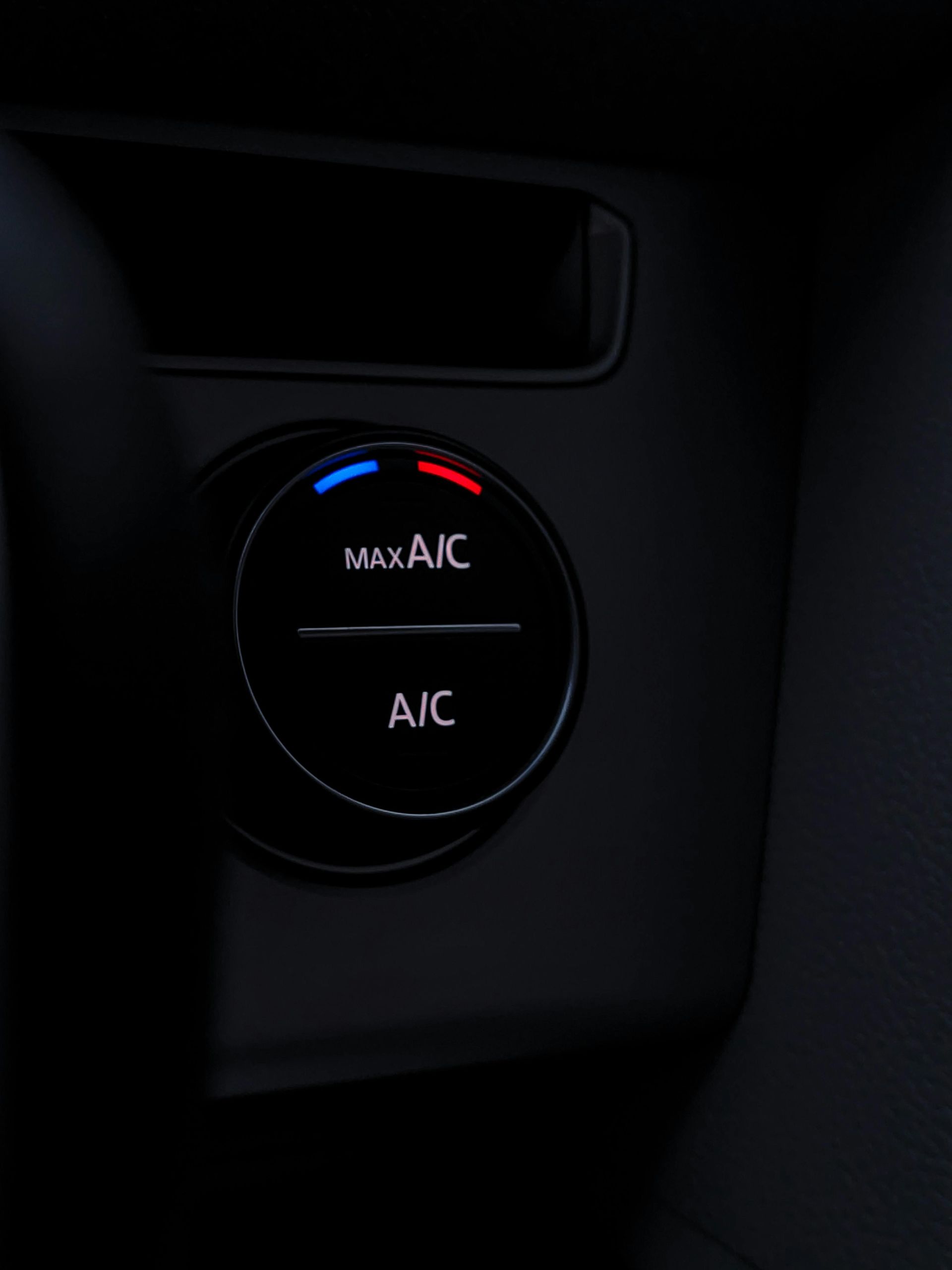
Summer heat in Frederick, Maryland can be brutal. When temperatures soar into the 90s and humidity makes it feel even hotter, the last thing you want is to climb into a car with broken air conditioning. If your AC is blowing warm air instead of the refreshing cool breeze you expect, don't panic. There are several common reasons why this happens, and many can be fixed without breaking the bank. Low Refrigerant Levels: The Most Common Culprit The most frequent cause of warm air from your AC is low refrigerant. Your car's air conditioning system relies on refrigerant to absorb heat and create cool air. Over time, small leaks can develop in the system, causing refrigerant levels to drop. Signs of low refrigerant include: Air that starts cool but gets warmer over time Visible ice forming on AC components Hissing sounds when the AC is running If you suspect low refrigerant, avoid trying to add more yourself. Modern AC systems require specific types and amounts of refrigerant, and improper handling can damage expensive components. Electrical Issues That Stop Cool Air Your car's AC system depends on several electrical components working together. When any of these fail, your AC might blow air but not cold air. Common electrical problems include: Blown fuses - These protect the AC system from power surges Faulty relays - These control when different AC components turn on and off Bad wiring connections - Corrosion or loose connections can interrupt power flow These issues often develop gradually, so you might notice your AC working intermittently before it stops cooling completely. Clogged or Dirty Components Frederick's spring pollen and road dust can wreak havoc on your AC system. Several components can become clogged, reducing cooling efficiency: Cabin Air Filter : This filter cleans air before it enters your car. When clogged, it restricts airflow and forces your AC to work harder. Most cabin air filters should be replaced every 12,000 to 15,000 miles, though Frederick's tree-heavy environment might require more frequent changes. Condenser : Located in front of your radiator, the condenser releases heat from the refrigerant. Bugs, leaves, and debris can block airflow through the condenser, preventing proper cooling. Evaporator : Inside your dashboard, the evaporator can collect dirt and debris over time, reducing its ability to cool air effectively. Mechanical Failures That Need Professional Attention Some AC problems require mechanical repairs that go beyond basic maintenance: Compressor Issues : The compressor pressurizes refrigerant and circulates it through the system. When it fails, your AC won't cool at all. Compressor problems often make grinding or squealing noises. Expansion Valve Problems : This component controls refrigerant flow. When it sticks open or closed, it disrupts the cooling process. Belt Problems : A loose or broken drive belt can prevent the compressor from running, even if everything else works perfectly. What You Can Check Yourself Before heading to a repair shop, try these simple checks: Look at your cabin air filter - It's usually behind the glove compartment and should be white or light-colored when clean Check for obvious leaks - Look for oily spots under your car where you park Listen for unusual sounds - Grinding, squealing, or hissing noises often indicate specific problems Test different settings - Try various fan speeds and temperature settings to see if the problem changes When Frederick Weather Makes AC Problems Worse Frederick's climate creates unique challenges for car AC systems. Hot, humid summers force your AC to work overtime, while spring pollen can quickly clog filters. The temperature swings from cool spring mornings to hot afternoons also stress AC components. Many Frederick drivers notice AC problems starting in late spring when they first turn on their system after winter. This is normal - seals can dry out during cold months, and components that sat idle may need time to work properly again. The Cost of Waiting Too Long Ignoring AC problems often makes them worse and more expensive. A simple refrigerant recharge might cost under $200, but waiting could lead to compressor failure that costs over $1,000 to fix. Small leaks can damage other components if left untreated. Prevention Tips for Frederick Drivers Regular maintenance helps prevent AC problems: Replace cabin air filters regularly, especially during high pollen seasons Run your AC briefly even in winter to keep seals lubricated Have your AC system inspected before summer heat arrives Keep your car's front grille clean of debris Don't Sweat It - Get Professional Help When your car's AC isn't keeping you cool, don't suffer through another sweltering Frederick summer. At Spectra Auto Services, our experienced technicians can quickly diagnose AC problems and get you back to comfortable driving. We service all makes and models, and our work comes with a 24-month/24,000 mile nationwide warranty. Located at 324 N East St in Frederick, we've been keeping local drivers cool and comfortable for over 35 years. Call us at (301) 244-9975 or book an appointment online. Beat the heat - your comfort is worth it.
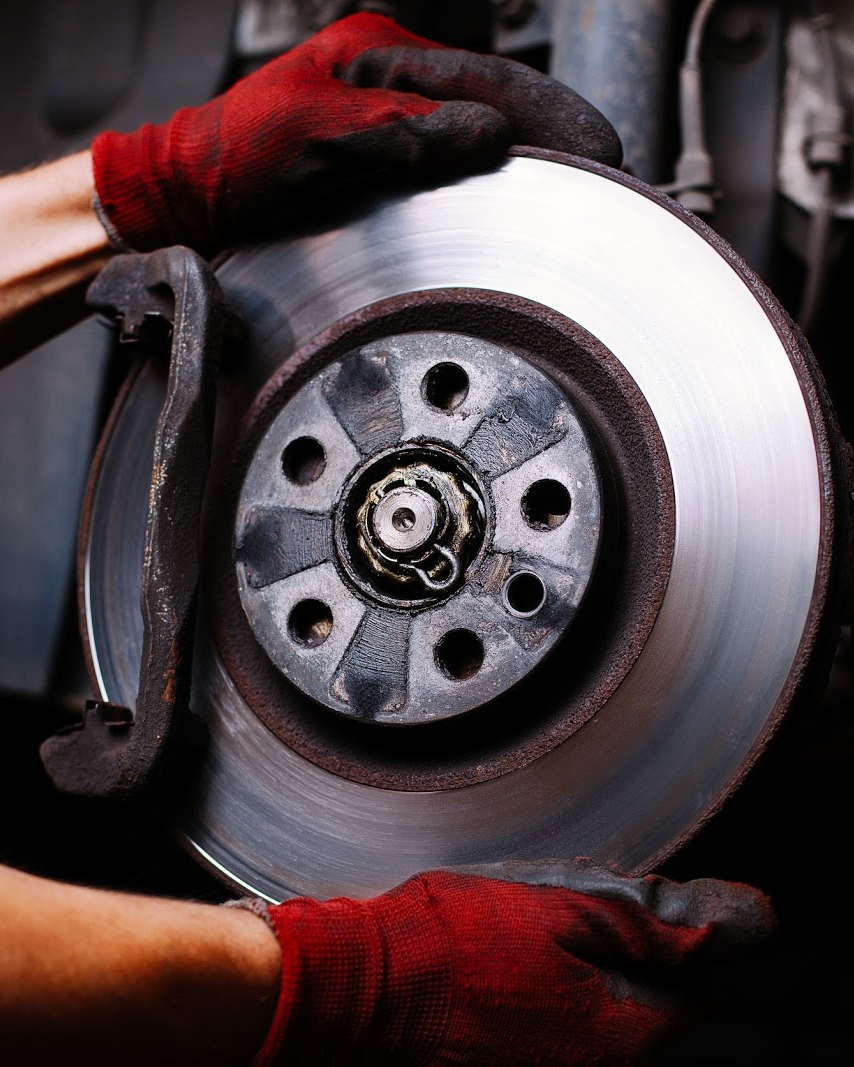
When temperatures soar into the 90s and humidity makes it feel even hotter, your car's brakes face challenges that many Frederick drivers don't realize. Maryland's summer weather creates a perfect storm for brake problems – intense heat, high humidity, and stop-and-go traffic that can push your braking system beyond its comfort zone. Whether you're commuting through Frederick rush hour traffic or taking weekend trips to Ocean City, understanding how extreme heat affects your brakes could prevent dangerous brake failure when you need stopping power most. Why Maryland Heat Is Tough on Brakes Maryland summers bring a deadly combination for brake systems. High temperatures and humidity create conditions that stress every component of your braking system differently than dry heat or moderate climates. Heat buildup occurs naturally when you brake – friction between brake pads and rotors converts your car's motion into thermal energy. In Maryland's humid conditions, this heat doesn't dissipate as efficiently. The moisture-laden air can't absorb heat as effectively as dry air, causing brake components to run hotter for longer periods. Stop-and-go traffic on I-270 or Route 15 compounds the problem. Unlike highway driving where brakes cool between uses, city driving and traffic jams create continuous heat cycling that stresses brake materials beyond their design limits. How Heat Damages Your Brake System Extreme heat attacks your brake system in multiple ways, often creating problems that aren't immediately obvious but can lead to dangerous failures. Here's what happens when your brakes get too hot: • Brake fluid boiling creates vapor bubbles that make your brake pedal feel spongy or sink to the floor • Brake pad material breaks down and becomes less effective at creating friction • Metal brake rotors can warp from repeated heat cycling, causing vibration and uneven stopping • Rubber seals and gaskets deteriorate faster, leading to brake fluid leaks • Electronic brake components may malfunction when overheated The most dangerous effect is brake fade – when your brakes gradually lose stopping power as they overheat. This can happen gradually or suddenly, leaving you with little warning before your brakes fail to stop your vehicle effectively. Recognizing Heat-Related Brake Problems Your car will give you warning signs when heat is affecting your brake performance. Don't ignore these symptoms – brake problems can escalate quickly in Maryland's demanding summer conditions. Watch for these indicators that heat is damaging your brakes: • Brake pedal feels soft, spongy, or travels farther than usual before engaging • Burning smell after driving, especially after stop-and-go traffic or mountain driving • Vibration in the steering wheel or brake pedal when stopping • Squealing or grinding noises that get worse in hot weather • Car pulls to one side when braking, indicating uneven brake performance • Brake warning light on your dashboard, especially during hot weather Special Considerations for Different Vehicles Different types of vehicles face unique brake challenges in Maryland's heat, and the solutions vary depending on what you drive. Trucks and SUVs Heavier vehicles generate more heat when braking due to their weight and size. If you tow boats to the Chesapeake Bay or haul equipment for work, your brakes work even harder. Consider upgrading to heavy-duty brake pads designed for towing applications. Performance Vehicles Sports cars and performance sedans often use high-performance brake pads that handle heat well but may be noisier in everyday driving. These vehicles typically have better brake cooling systems but still need attention in extreme heat. Older Vehicles Cars and trucks over 10 years old may have brake fluid that's absorbed moisture over time, making it more likely to boil in hot weather. Older brake lines and seals are also more prone to heat-related failure. Protecting Your Brakes in Hot Weather Smart driving habits and preventive maintenance can help your brakes handle Maryland's challenging summer conditions. Driving Techniques Anticipate stops and brake gradually when possible instead of making hard, sudden stops. Use engine braking on long downhill stretches – downshift to let your engine help slow the vehicle. In stop-and-go traffic, leave extra space between vehicles to reduce the frequency of braking. Maintenance Schedule Adjustments Check brake fluid level monthly during hot weather and have it tested for moisture content annually. Inspect brake pads and rotors more frequently if you drive in heavy traffic or do a lot of city driving. Consider having your brakes professionally inspected before summer road trips. Cooling Strategies After driving in extreme heat or heavy traffic, allow extra time for brakes to cool before parking in an enclosed garage. If you notice brake problems developing, pull over safely and let your brakes cool completely before continuing to drive. When to Seek Professional Help Some brake problems require immediate professional attention, especially in hot weather when small issues can quickly become dangerous failures. See a qualified technician immediately if you experience: • Brake pedal that sinks to the floor or feels spongy • Complete loss of brake pressure or stopping power • Grinding metal-on-metal sounds when braking • Brake warning lights that stay illuminated • Severe vibration or pulling that makes the car difficult to control Don't attempt to drive with compromised brakes, especially in hot weather when problems can worsen rapidly. Stay Safe When the Heat Is On Maryland's summer heat doesn't have to compromise your safety. With proper awareness, smart driving habits, and regular brake maintenance, you can maintain reliable stopping power even when temperatures soar. Whether you're driving daily through Frederick traffic or planning summer road trips, your brakes need special attention during hot weather. Don't wait for problems to develop – preventive brake care is always less expensive and safer than emergency repairs. Spectra Auto Services has been keeping Frederick area drivers safe for 35 years, and our TechNet-certified technicians understand how Maryland's heat and humidity affect brake performance. We provide comprehensive brake inspections, quality repairs using components designed for our climate, and honest advice about brake maintenance. Call us at (301) 244-9975 to schedule your brake inspection today. Located at 324 N East St in Frederick, we back all our brake work with a 24-month/24,000-mile nationwide warranty. Beat the heat with brakes you can trust – your safety depends on it.


